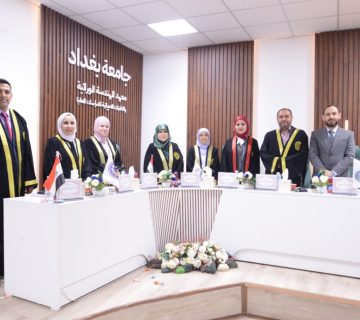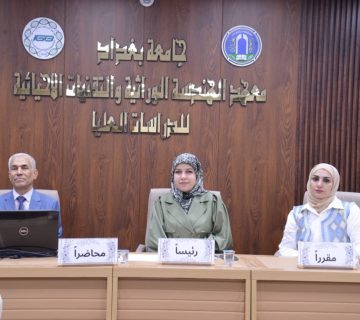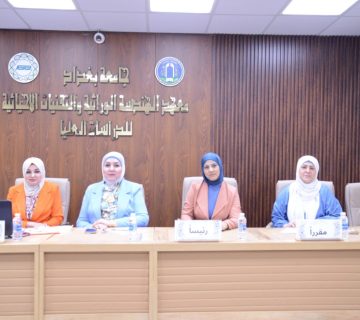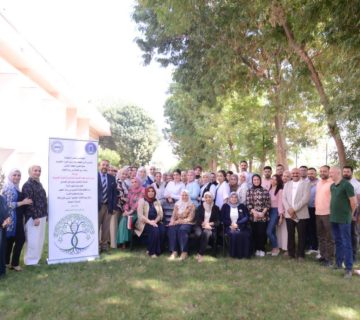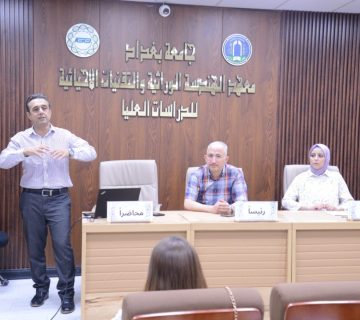The Institute of Genetic Engineering and Biotechnology for Postgraduate Studies/University of Baghdad discussed the master’s thesis of the student “Abdul Wahid Mohsen Zahir” entitled: “Detection of some virulence factors in types of enterococci bacteria resistant to vancomycin isolated from clinical samples” in the discussion hall at the institute.
The study aimed to detect some virulence factors in types of enterococci bacteria resistant to vancomycin isolated from clinical samples.
During the study, the diagnosis was made using the (Enterococcus) positive system for bacteria. Biochemical tests were conducted for bacterial isolates that gave cultural characteristics. The positive results combined for all previous tests were adopted. Accordingly, 20 bacterial isolates belonging to the genus E. faecalis and only 5 bacterial isolates belonging to the genus E. faecium were obtained. Then, the sensitivity test for the antibiotic vancomycin from the (Glycopeptide) class was conducted using the disk diffusion method.
The results showed that all E. faecalis isolates were 100% sensitive to vancomycin and only 3 E. faecium isolates were 60% resistant to vancomycin. The study confirmed the diagnosis of enterococci using specific primers for 16 RNA, ddl E.faecalis and ddl E.faecium (diagnostic genes) which gave results similar to the diagnosis by previous methods.
The study revealed some genes responsible for virulence (Esp, Ace) where the results showed the presence of the Ace gene at 100% in E.faccalis and E.taecium respectively, in E.faecium at 95% and 80% in E.faecalis in Esp while the result of the gene was.
The study recommended the molecular detection of some genes responsible for vancomycin resistance (vanA vanB) where the results showed a percentage of (0) (60%) for the vanA gene in E.faccalis and F.faecium respectively.




